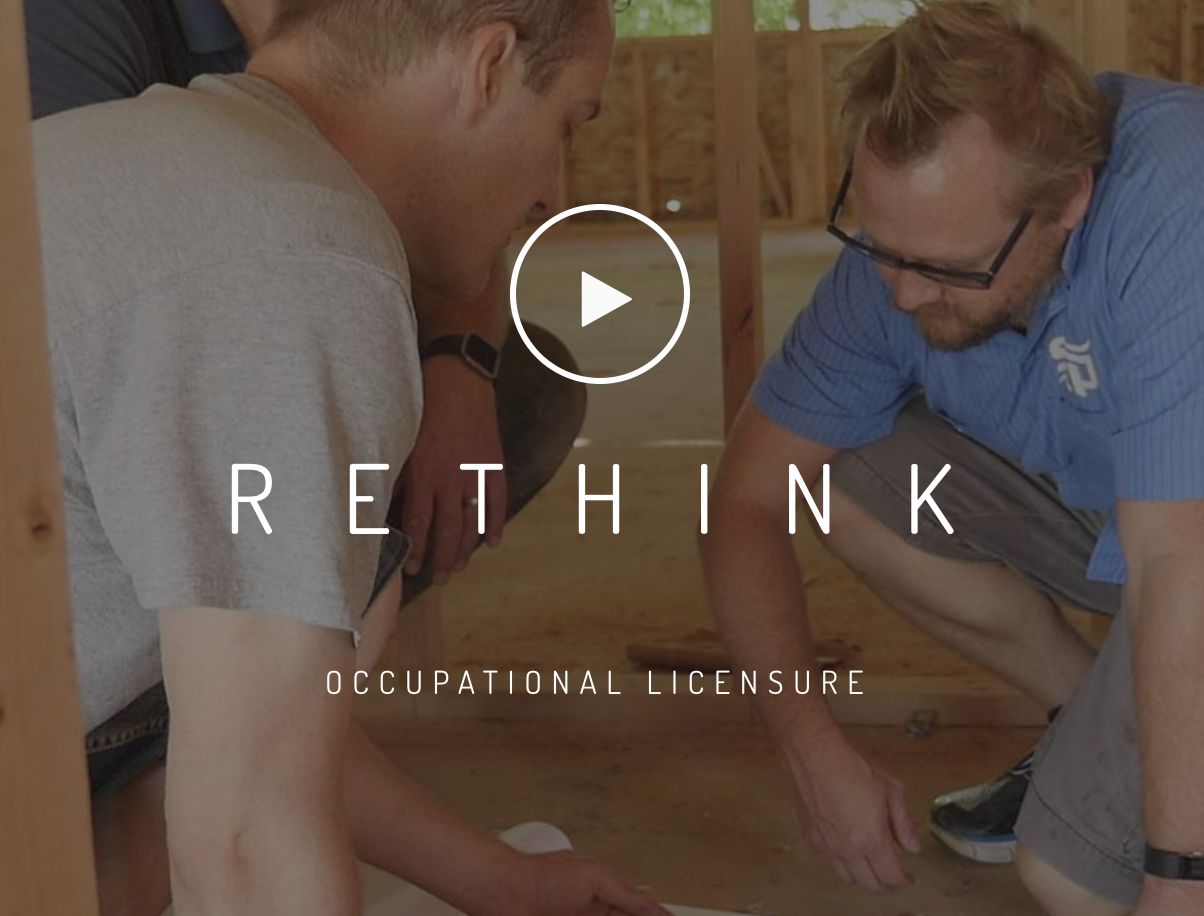At his inauguration last week, Governor Spencer Cox signed his first executive order dealing with occupational licenses—the government requirement to obtain a permission slip as a condition of engaging in a restricted profession.
This executive order requires state agencies to review all occupational licenses to ensure they are truly necessary and are not outdated or incomplete. The review must be completed by June 30.
This is a welcome first step by the new administration and signals potential changes in streamlining burdensome government restrictions. Utah has room for improvement here, as the state had the 13th most burdensome licensing laws in the country according to the Institute for Justice’s report.
Of course, this review will depend entirely upon the criteria used to assess the existing laws. The executive order tells agencies to “identify rules and regulations that are no longer necessary or can be amended to reduce barriers to working while still protecting the health, safety, and well-being of Utah residents.” This reduction of barriers is certainly possible.
In fact, there are ample opportunities within existing licensed professions to reduce the number of hours required, or the steps needed to be taken to secure the permission slip. But groups representing these professions typically fight reform efforts at the Capitol because they so often prefer the protectionist status quo that creates a high barrier to entry for new competitors in their industry.
This is not the role of government; any licensure requirements should be very narrow so as to only satisfy the need for public health.
For example, chefs in Utah who touch and process the food you ingest only need to have a food handler’s permit, regardless of whether they work at Wendy’s or the finest establishment in the state. For all chefs, the license requirement is minimal and narrowly tailored. In under two hours and for less than $50, a person can obtain the food handler’s permit and deal with your food.
However, a person who wants to cut your hair must pay many thousands of dollars and take 1,600 hours worth of classes, mandated by law. These classes teach how to cut hair well, style, etc., but this should not be required by law. Just as the government does not require chefs to learn how to cook well, cosmetologists should not be required by law to be proficient in their work—only safe. This is the narrow interest of public policy alone.
 Of course, there are many other professions for which a license is needed. In our “Rethink Why” video, we share some examples of the problem and suggest solutions that require a different approach—one which we hope the executive order prompts in the months and years to come.
Of course, there are many other professions for which a license is needed. In our “Rethink Why” video, we share some examples of the problem and suggest solutions that require a different approach—one which we hope the executive order prompts in the months and years to come.
There are a variety of professions where existing requirements can be substantially lowered, and we are hopeful that the agencies will, in response to the executive order, indicate this to be the case. Whatever results from the review, the Legislature, by law, creates such impositions on Utah’s workers and bears the responsibility for the current restrictions.
We hope that this being Governor Cox’s first executive order, it marks a new day moving forward for elected officials throughout the state to reduce marketplace barriers, encourage competition, and protect the right to work by restraining government burdens wherever they exist.





